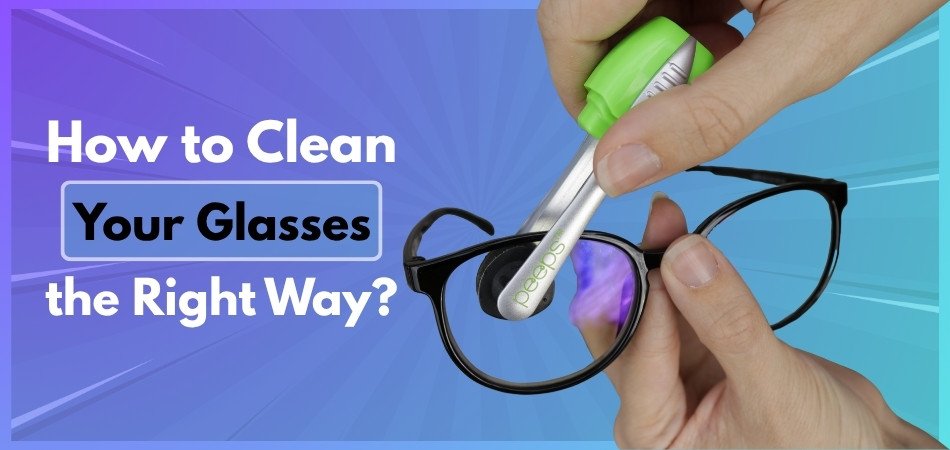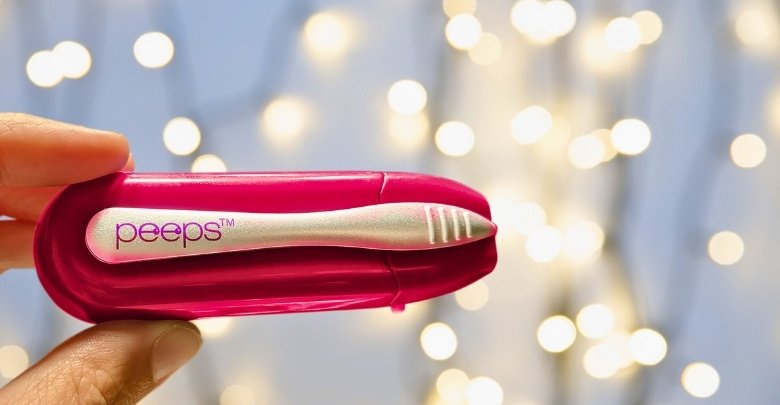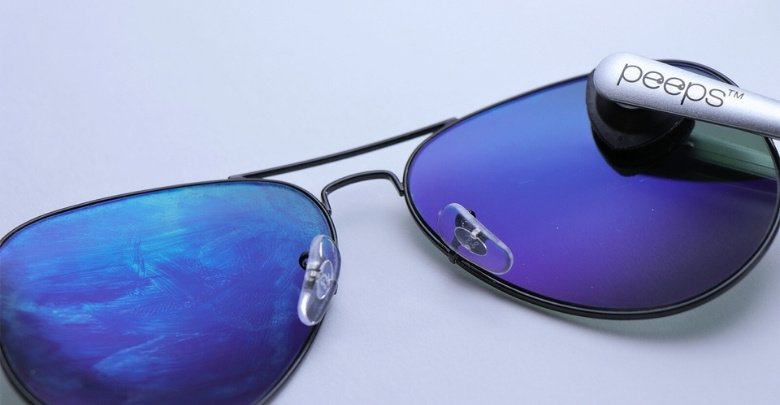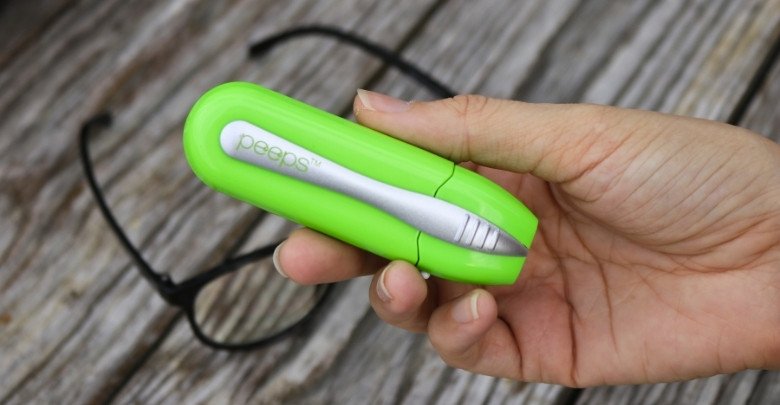Dirty glasses can make it hard to see and even hurt your eyes. Smudges, dust, and fingerprints build up fast. Many people use the wrong things to clean their glasses and end up with scratches. But there is an easy and safe way to do it right.
So, how to clean your glasses the right way?
To clean your glasses the right way, rinse them with lukewarm water. Add a drop of mild dish soap and gently rub with your fingers. Rinse again to remove all soap. Dry with a soft microfiber cloth. Don’t use paper towels or clothes—they can scratch the lenses.
Keep reading for more simple tips!
How to Clean Your Glasses the Right Way?
Wearing glasses means dealing with smudges and dust every day. Clean lenses help you see better and protect your eyes. It’s easy to keep your glasses looking clear if you know the right way.

Step 1: Rinse With Lukewarm Water
Begin by holding your glasses under a gentle stream of lukewarm water. This helps wash away any dust or grit that could scratch the lenses. Make sure not to use hot water, as it can hurt the special coating on your lenses. A quick rinse keeps your glasses ready for the next step.
Step 2: Add a Drop of Dish Soap
Pick a mild, lotion-free dish soap and squeeze a tiny drop onto each lens. Gently rub the soap on both sides of the lenses and all over the frame with your fingers. This step lifts off oils, fingerprints, and sticky smudges. Always use clean hands before touching your lenses.
Step 3: Rinse Away the Soap
Hold your glasses under lukewarm running water again. Wash off every bit of soap, making sure nothing is left on the lenses or frame. Soap residue can leave streaks, so take your time with this step. Shake off extra water before drying.
Step 4: Dry With a Microfiber Cloth
Take a clean, dry microfiber cloth and gently pat or wipe your glasses dry. Microfiber cloths are soft and made for lenses, so they will not scratch the surface. Avoid paper towels, tissues, or your shirt, as they can cause scratches or leave lint behind. Make sure your glasses are fully dry before wearing them.
Step 5: Check for Smudges
Hold your glasses up to the light and look for any leftover streaks or spots. If you still see some marks, repeat the process or use a lens wipe for a quick fix. Clean glasses help you see clearly and keep your lenses in great shape. Give your glasses a quick check every day for the best results.
Which Products Are Best Suited for Cleaning Your Eyeglasses?
Keeping your glasses clean matters for both comfort and eye health. Using the right product makes cleaning easier and safer for your lenses. Different options work best depending on your needs and lifestyle. Choosing the best cleaner helps keep your glasses clear and scratch-free every day.

Peeps by CarbonKlean
A newer cleaning tool, Peeps by CarbonKlean, stands out for its carbon microfiber pads and retractable brush in a compact design. The carbon pads easily lift away smudges and oils, while the brush removes dust safely from your lenses. You can use Peeps up to 500 times, making it eco-friendly, portable, and suitable for all lens types. Many travelers and people who prefer a chemical-free option love the convenience and smart design of this tool.
Microfiber Cleaning Cloths
Many people trust microfiber cloths for daily cleaning because they are soft and safe for lenses. These cloths gently trap oils, dust, and smudges without scratching or leaving marks behind on your glasses. MagicFiber and Koala offer strong and reusable cloths that work well for all types of eyewear. Always keep the clothes clean to avoid spreading dirt across your lenses and frames.
Lens Cleaning Sprays
A lens spray is handy for deep cleaning and tough smudges, making your glasses shine in seconds with little effort. You should use sprays like Koala Eyeglass Lens Cleaner or ZEISS Lens Spray with a microfiber cloth for best results. Alcohol-free sprays protect lens coatings and remove greasy marks quickly without any streaks left behind. These sprays are safe for anti-reflective and polycarbonate lenses when used correctly.
Pre-Moistened Lens Wipes
For quick cleaning outside the home, lens wipes are simple and practical for anyone who wears glasses every day. Brands such as ZEISS and Superdrug provide individually wrapped wipes with gentle cleaning solutions that work for most lens types. Each wipe gives a fresh clean and avoids scratches, but they create extra waste compared to reusable options. These are perfect when you do not have water or a cloth with you.
Dish Soap and Water Method
Many people find dish soap and water work well for a deeper clean at home, removing oils and fingerprints from any lens type. Use lotion-free dish soap and lukewarm water to gently clean lenses, then dry them with a microfiber cloth. Avoid using hot water, as it can damage the coating on your glasses over time. This method is simple, budget-friendly, and does not require any special products.
Mistakes to Avoid While Cleaning Your Eyeglasses
Keeping your eyeglasses clean helps you see clearly and keeps them in great shape. But using the wrong cleaning methods can do more harm than good. Many people make simple mistakes that scratch or damage their lenses without realizing it. Avoid these habits to protect your glasses and enjoy clear vision every day.
- Rough Cleaning Tools: Paper towels, tissues, or your shirt can scratch your lenses or leave lint behind. Always pick a soft, clean microfiber cloth for cleaning.
- Dry Lens Wiping: Dust or dirt can cause scratches if you wipe lenses without rinsing first. Always rinse with lukewarm water before cleaning your glasses.
- Hot Water Damage: Hot water can ruin lens coatings or bend plastic frames quickly. Use only lukewarm water to rinse your glasses safely each time.
- Wrong Cleaners Used: Window cleaners, vinegar, or alcohol-based sprays damage coatings on your lenses. Use mild, lotion-free dish soap or lens cleaners instead.
- Too Much Pressure: Rubbing hard can cause tiny scratches and even damage your frames. Gentle, light motions with your fingertips or cloth work best.
- Skipping Microfiber Cloth: Regular towels and napkins scratch lenses and leave streaks or lint behind. Microfiber cloths protect your lenses while drying and cleaning them.
- Dirty Hands Mistake: Dirty or oily hands add smudges to your lenses while cleaning. Wash your hands with soap and water before you touch your glasses.
- Ignoring Frames and Pads: Frames, nose pads, and hinges collect grime and germs just like lenses. Remember to clean every part of your glasses for best results.
- Improper Use of Wipes: Lens wipes are useful, but should never be used on dry lenses or with strong pressure. Use wipes gently for touch-ups or after rinsing.
- Storing Glasses Wrong: Leaving glasses out or tossing them in a bag leads to scratches and bent frames. Always keep your glasses in a hard case when not in use.
How Often Should You Clean Your Eyeglass?
Keeping your eyeglasses clean helps you see better and protects your lenses from damage. Experts usually suggest daily cleaning for clear vision. However, how often you clean them can depend on your environment, daily activities, and personal habits. Understanding these factors helps you decide how frequently you should clean your glasses.

Daily Habits
Regular use of glasses leads to oily smudges and fingerprints on your lenses every day. Frequent touching or adjusting glasses transfers oils from your skin onto the lens surface. Cleaning your glasses once every day keeps them clear and prevents dirt from building up. Quick daily cleans make it easier to see clearly and comfortably through your lenses.
Type of Activities
Some activities cause your glasses to get dirty faster, meaning they need cleaning more often. If you play sports, glasses quickly become sweaty, dirty, and uncomfortable on your face. Activities involving gardening, woodworking, or outdoor hobbies often create dirt and dust buildup on lenses. Always clean your glasses right after finishing messy or sweaty activities to maintain clear vision.
Work Environment
Jobs in dusty or dirty settings require you to clean your glasses frequently to avoid blurry vision. Working near construction, factories, or outdoors exposes lenses to dirt and dust throughout the day. Cleaning your glasses after work ensures no harmful particles stay on your lenses for too long. This protects your lenses from scratches and keeps your eyes feeling comfortable and healthy.
Accidental Spills or Splashes
Unexpected spills or splashes mean you must clean your glasses immediately to prevent damage or stains. If liquids like coffee or juice splash onto lenses, rinse and wipe quickly to avoid sticky residue buildup. It helps you gently remove stains without harming your lens coatings; using the right type of water for cleaning plays a key role here. Quick cleaning after spills helps your glasses stay spotless, clear, and free of annoying streaks.
Skin Sensitivity
People with sensitive skin may need to clean glasses more often to reduce irritation from dirty frames. Dirt or bacteria trapped on frames or nose pads easily cause skin irritation or redness when worn for long periods. Regular cleaning reduces bacteria buildup, helping frames remain comfortable against your skin throughout the day. Proper hygiene practices protect both your glasses and your skin, promoting healthier daily wear.
Tips to Store Your Eyeglasses After Cleaning Them
Sometimes after you clean your glasses, you just toss them on your desk or into your bag without thinking twice. It’s easy to forget that storing your glasses the right way matters just as much as cleaning them. Taking a few extra seconds can save your lenses from scratches or broken frames. Learning these simple habits will help you keep your glasses in great shape for a long time.

Hard Protective Case
Always try to keep your glasses in a sturdy, hard case whenever you’re not wearing them. This protects them from falls, squishing, and bumps in your bag or locker. Soft pouches might look nice, but they don’t stop your glasses from getting bent or scratched. Hard cases are easy to carry and last a long time, so your glasses stay safe.
Lenses Facing Up
When you need to set your glasses down for a minute, make sure the lenses are facing up and the arms are folded. This helps you avoid scratching the lenses on the table or any rough surface nearby. A quick check before you put them down keeps your glasses looking clear and clean. Never rest your glasses with the lenses facing down.
Clean the Case
Your glasses case can get dusty or dirty inside, which can then make your glasses dirty again. Wipe out the inside of your case now and then with a damp cloth and a little bit of mild soap. Always dry the case before putting your glasses back in, so no moisture gets trapped. Clean cases mean clean glasses, which makes seeing easier.
Away from Heat
Don’t leave your glasses near heaters, on the dashboard of a car, or in really cold places. Heat can bend or even melt your frames, while cold can make them brittle. Keep your glasses somewhere cool and dry, like your desk or bedside table. A good spot keeps them safe and ready to use.
Microfiber Cloth Wrap
If you want extra protection, wrap your glasses in a clean microfiber cloth before putting them in the case. Microfiber cloths are super soft and stop small scratches from happening inside the case. Plus, they help soak up any tiny drops of water left on your glasses. If you use tools to clean your glasses, remember to clean a Peeps eyeglass cleaner as well to keep everything fresh.
No Shirt Hanging
It can be tempting to hang your glasses on your shirt collar or pocket, but it’s risky. They can easily slip off, get scratched, or even fall and break. Instead, always put them back in their case if you’re not wearing them. Your glasses will last longer and you’ll save money on repairs.
Safe From Chemicals
Keep your glasses far from sprays like hairspray, perfume, or cleaning products. These can mess up the special coating on your lenses or damage the frame material. Store your glasses in a spot away from your bathroom shelf or vanity. The less they’re around harsh sprays, the better they’ll stay.
FAQs About Cleaning Your Glasses the Right Way
Keeping your glasses clean can sometimes be confusing with so many tips and tricks out there. Here are some helpful answers to questions you might have about cleaning your eyewear. These simple tips will help you care for your glasses every day.
Can I Use Hand Soap to Clean My Glasses?
Use mild, lotion-free dish soap instead of hand soap, as many hand soaps have moisturizers that leave streaks or residue. Dish soap gently removes oils, dirt, and smudges, keeping your lenses crystal clear and free from buildup.
Are There Any Safe DIY Lens Cleaners?
Mix a drop of mild dish soap in lukewarm water to make a simple, safe cleaning solution at home. Avoid using any cleaning mixtures with vinegar, baking soda, or harsh chemicals, as these can damage lens coatings and frames.
Is It Okay to Clean Glasses With Tap Water?
Lukewarm tap water is safe for rinsing your glasses before cleaning. Never use hot water, as it can ruin lens coatings or warp frames. Always make sure the water is not too cold, which may not remove oils effectively.
Can I Air Dry My Glasses After Washing?
Air drying your glasses can leave water spots or streaks on the lenses, making them look dirty. It’s always better to gently dry them with a clean microfiber cloth designed for glasses, ensuring clear and spot-free lenses every time.
What If I Don’t Have a Microfiber Cloth?
If you don’t have a microfiber cloth, avoid using tissues, paper towels, or clothing. Instead, let your glasses air dry or use a soft cotton cloth, but remember, microfiber is always safest and least likely to scratch your lenses.
How Often Should I Replace My Microfiber Cloth?
Replace your microfiber cloth when it becomes dirty, worn, or no longer cleans well. Washing it regularly with mild soap and water helps extend its life, but always keep a spare, fresh cloth handy for the best results.
Can I Use Compressed Air to Blow Dust Off My Glasses?
Compressed air can blow dust off lenses but may leave moisture or chemicals behind, depending on the product. If you use compressed air, check that it’s safe for optics, and always follow up with a gentle rinse and cleaning.
Do Lens Cleaners Expire or Go Bad?
Most commercial lens cleaning sprays have a shelf life of one to two years. Over time, ingredients can break down and become less effective or even leave residue. Always check the expiration date and store lens cleaners properly.
How Should I Clean Nose Pads and Hinges?
Use a cotton swab dipped in mild, lotion-free soapy water to gently clean nose pads and hinges. This removes grime, oils, and bacteria that collect in hard-to-reach areas, keeping your glasses comfortable and your skin free from irritation.
What Should I Do If My Lenses Stay Cloudy After Cleaning?
If lenses remain cloudy, they may have leftover soap, hard water stains, or old residue. Rinse thoroughly, use fresh cleaning solution, and dry with a microfiber cloth. Persistent cloudiness might mean it’s time to visit your optician for help.
Last Words
Taking care of your glasses does not have to be hard. You just need to know how to clean your glasses the right way so they stay clear and scratch-free. Use gentle soap, lukewarm water, and a soft cloth for the best results.
Store your glasses safely and don’t forget to clean every part. These easy habits help your glasses last longer and help you see better every day. If you follow these simple tips, you won’t have to worry about smudges or damage. Clean glasses mean clear vision and happier eyes!






